Canadian Content regulation has for decades been a prime focus in any debate about our communications system. In the digital media age, the issue is still present but sometimes feels like it is covered up by the overwhelming changes and innovations bred through the mostly unregulated and seemingly more urgent issues of social media today. So though we may feel it’s still important to define and understand the long term strategies, advantages and cost of supporting Canadian creative endeavours, WHAT ABOUT FAKE NEWS? WHAT ABOUT PRIVACY? AND BIG DATA? AND A.I.? AND MONOPOLY? AND NET NEUTRALITY? AND…? AND…? AND COULD THE CANUCKS REALLY NOT GET ANY DRAFT PICKS FOR THOMAS VANEK?
You get the idea. Canadian Content, both conceptually and practically seems to be off the front pages of our minds. Are we (the public) negligent in seemingly letting it slide from urgent view? Is it as important as it was? Is it important?
SOME SOURCES:
Broadcasting Act
3(1) It is hereby declared as the broadcasting policy for Canada that
(f) each broadcasting undertaking shall make maximum use, and in no case less than predominant use, of Canadian creative and other resources in the creation and presentation of programming, unless the nature of the service provided by the undertaking, such as specialized content or format or the use of languages other than French and English, renders that use impracticable, in which case the undertaking shall make the greatest practicable use of those resources;
(l) the Canadian Broadcasting Corporation, as the national public broadcaster, should provide radio and television services incorporating a wide range of programming that informs, enlightens and entertains;
(m) the programming provided by the Corporation should(i) be predominantly and distinctively Canadian,
(t) distribution undertakings(i) should give priority to the carriage of Canadian programming services and, in particular, to the carriage of local Canadian stations,
Television Broadcasting Regulations
Canadian Programs
4 (1) [Repealed, SOR/94-220, s. 2]
(2) For the purposes of this section,
ethnic programming period means that portion of the broadcast year during which a licensee broadcasts ethnic programs; (période de programmation à caractère ethnique)
evening ethnic programming period means that portion of the evening broadcast period during which a licensee broadcasts ethnic programs; (période de programmation à caractère ethnique en soirée)
evening broadcast period means the total time devoted to broadcasting between six o’clock in the afternoon and midnight during each broadcast year. (période de radiodiffusion en soirée)
(3) For the purposes of this section, the time devoted to the broadcasting of a program includes any time devoted to advertising material that is inserted
(a) within the program;
(b) in breaks within the program; or
(c) between the end of the program and the beginning of the following program.
(4) Subsections (6), (7), (9) and (10) do not apply to the licensee of an ethnic station.
(5) Subsections (6) and (7) do not apply to the licensee of a remote station.
(6) [Repealed, SOR/2017-160, s. 18]
(7) Subject to subsection (10),
(a) a licensee holding a public licence shall devote not less than 60 per cent of the evening broadcast period to the broadcasting of Canadian programs; and
(b) a licensee holding a private licence shall devote not less than 50 per cent of the evening broadcast period to the broadcasting of Canadian programs.
(8) Except where authorized by a condition of licence designed to enhance the quality or diversity of Canadian programs, the licensee of an ethnic station or of a remote station shall devote not less than
(a) 60 per cent of the broadcast year and of any six month period specified in a condition of licence to the broadcasting of Canadian programs; and
(b) 50 per cent of the evening broadcast period to the broadcasting of Canadian programs.
(9) Where a licensee is authorized by a condition of licence to devote less than 60 per cent of the ethnic programming period to the broadcasting of Canadian programs and does so, subsection (6) applies to that part of the broadcast year and of any six month period specified in a condition of licence during which the licensee is not broadcasting ethnic programs.
(10) Where a licensee is authorized by a condition of licence to devote less than the required percentage referred to in subsection (7) to the broadcasting of Canadian programs during the evening ethnic programming period and does so, subsection (7) applies only to that portion of the evening broadcast period during which ethnic programs are not broadcast.
(11) Where, in the calculation of the time devoted by a licensee to Canadian programs that are broadcast during a broadcast day, inequities arise among licensees because their stations are located in different time zones, the Commission may vary the application of this section in order that licensees receive equitable treatment in the calculation of their Canadian programs.
Also click through to see…
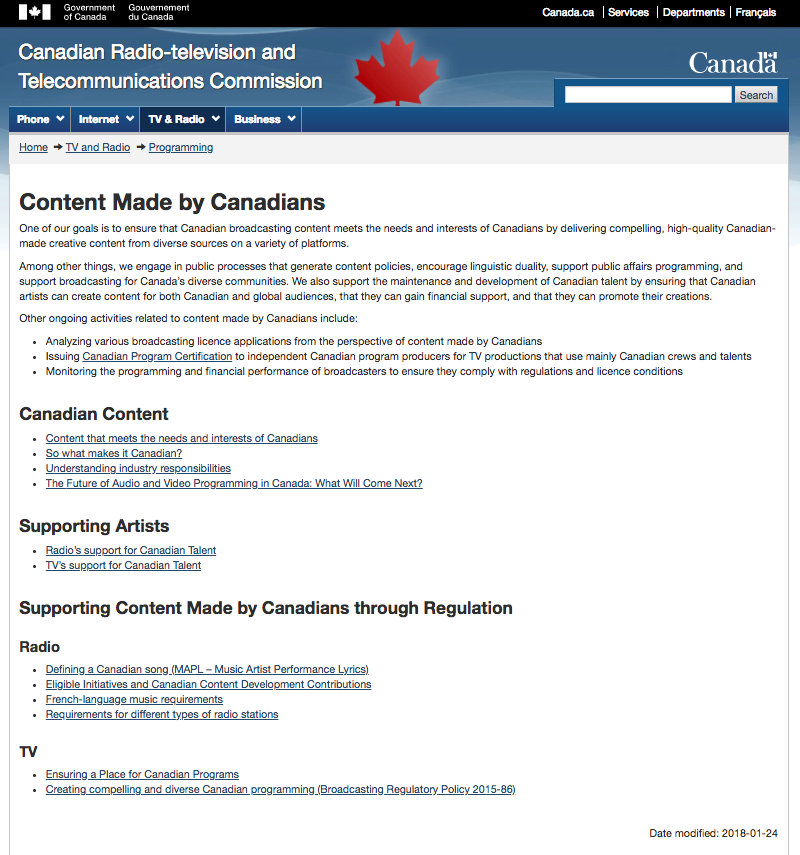
A pretty amazing archive of stories about Canadian Content can be found here…
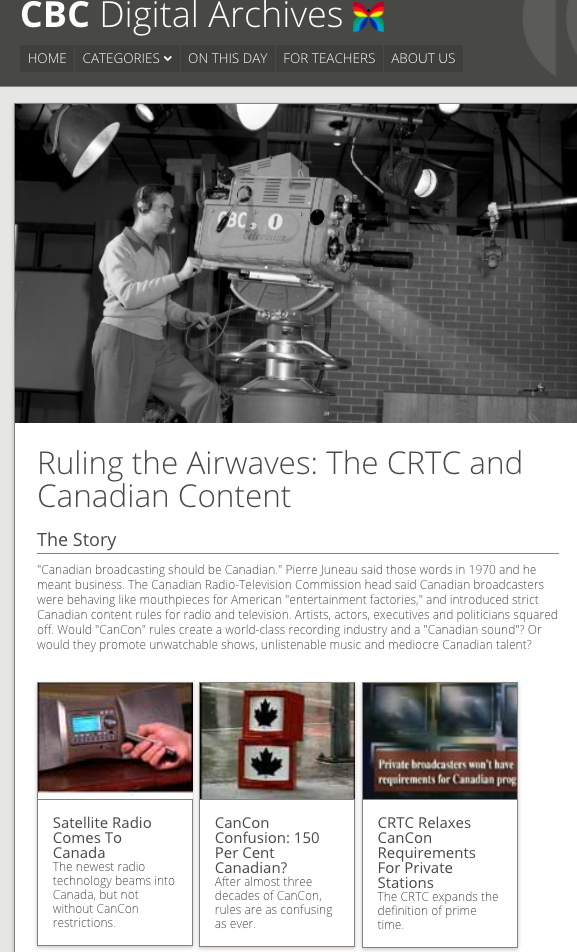
More in class tomorrow…
Jon

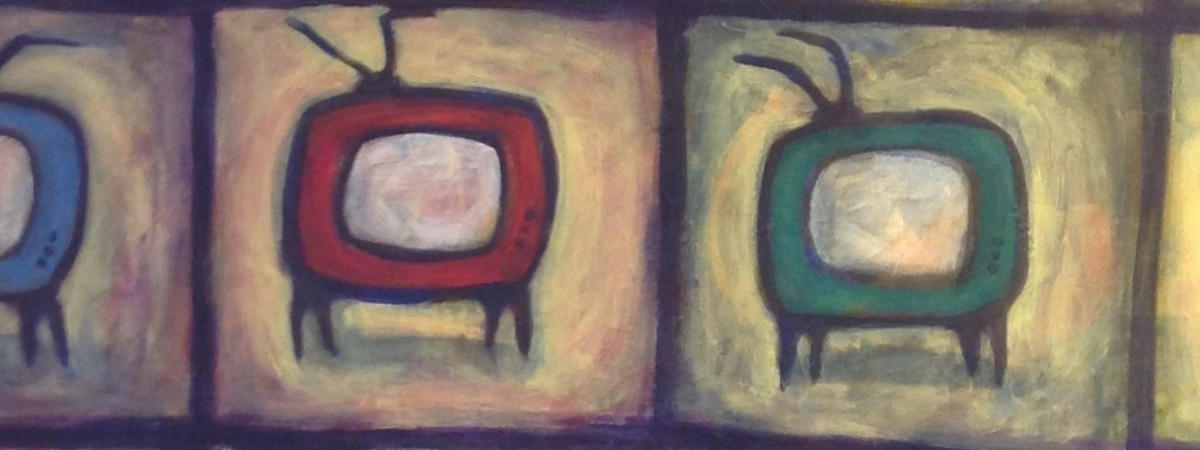
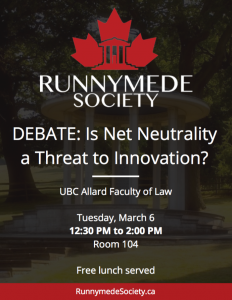
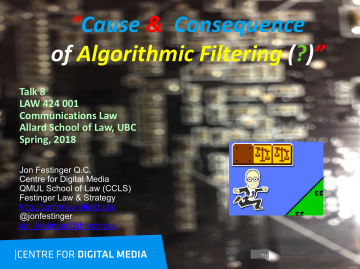
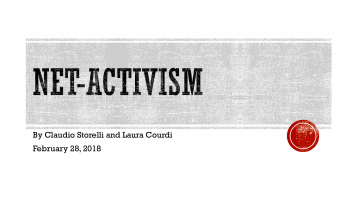


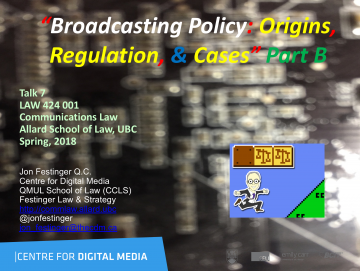

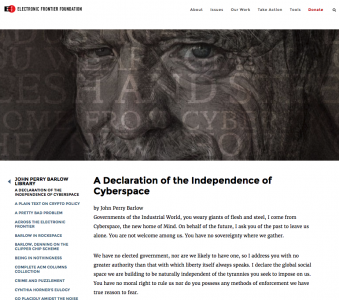
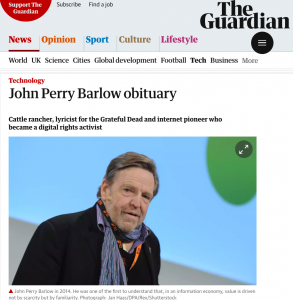
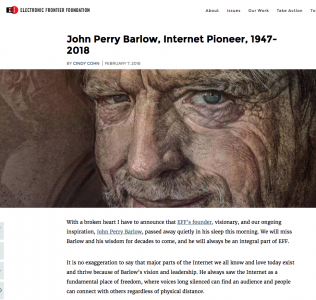
 Communications Law
Communications Law